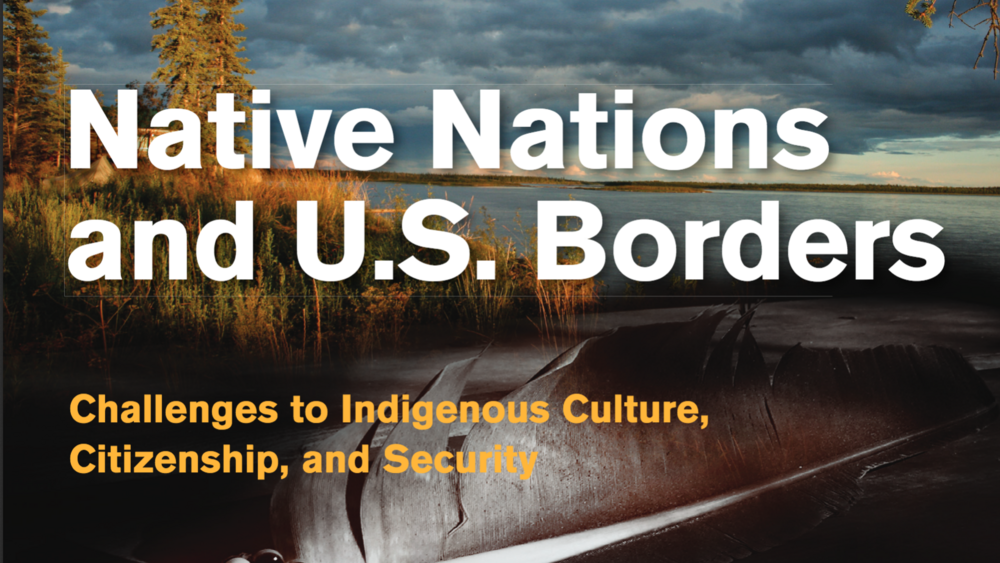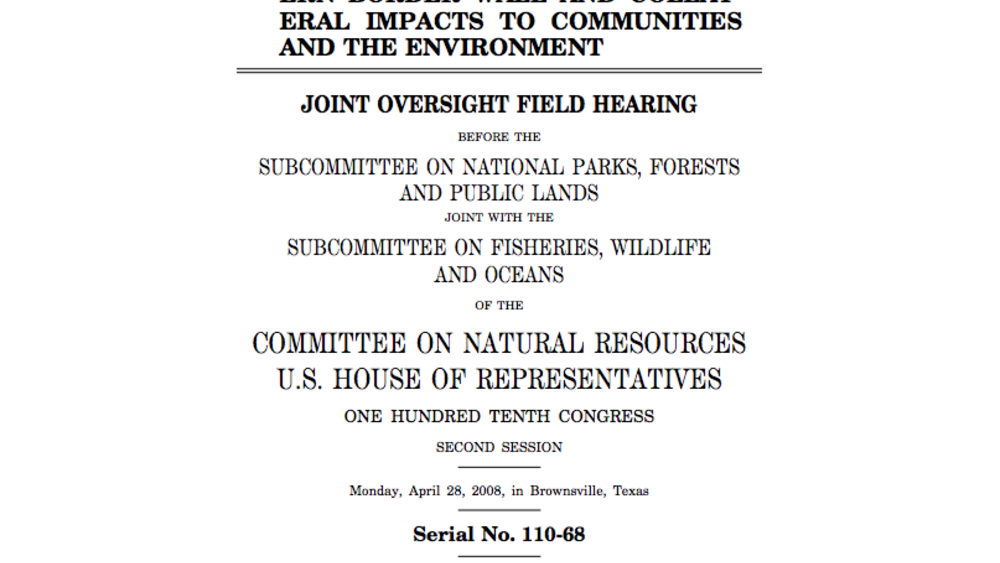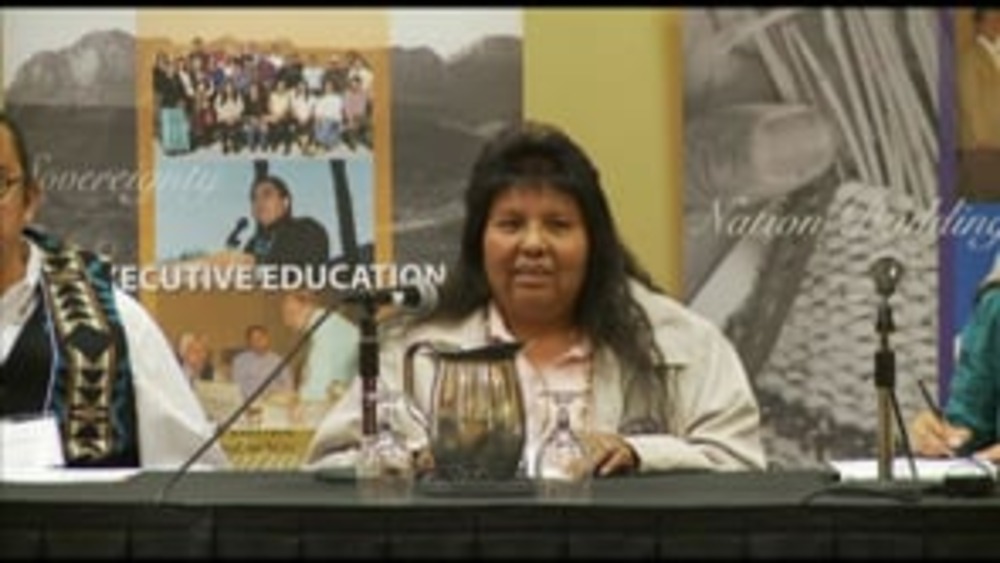Indigenous Governance Database
U.S.-Mexico border

Native Nations and U.S. Borders: Challenges to Indigenous Culture, Citizenship, and Security
A comprehensive review of Native nations along or near the U.S. borders with Mexico, Canada, and Russia response to border-related challenges to citizenship, crossing rights and border security, culture, the environment and natural resources, and public health and safety. This book seeks to inform…

Walls and Waivers: Expedited Construction of the Southern Border Wall and Collateral Impacts to Communities and the Environment
Joint Oversight Field Hearing before the Subcommittee on National Parks, Forests and Public Lands Joint with the Subcommittee on Fisheries, Wildlife and Oceans of the Committee on Natural Resources U.S. House of Representatives.Ned Norris, Jr., chairman of the Tohono O'odham Nation, provided a…

Cynthia Manuel: What I Wish I Knew Before I Took Office
Tohono O'odham Nation Legislative Council Member Cynthia Manuel discusses some of the challenges she has faced as an elected leader of her nation, and stresses the importance of leaders taking care of themselves physically, emotionally and spiritually.
